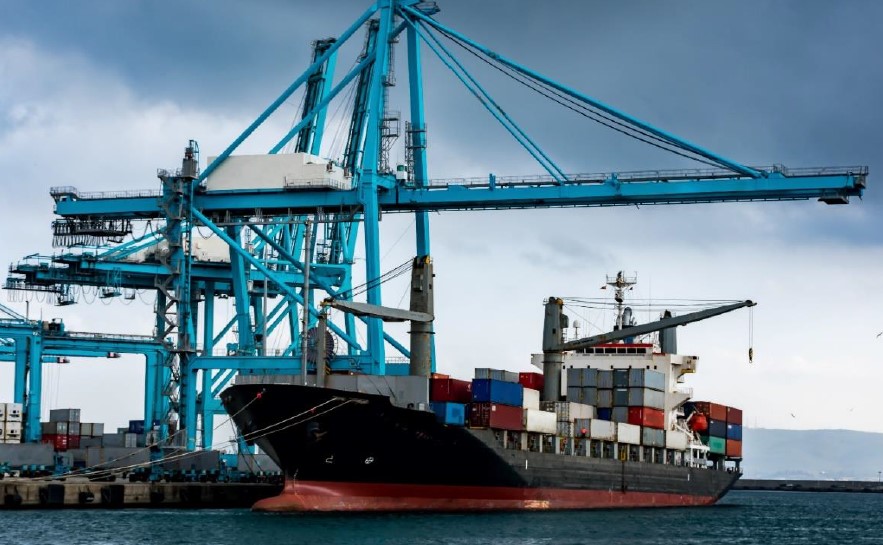UNCTAD-ECLAC Webinar on COVID-19 and Maritime Transport: Disruptions and Resilience in Latin America and the Caribbean
Work area(s)
Teaser
UNCTAD - ECLAC joint activity under UNDA project: Transport and trade connectivity in the age of pandemics
Event information

Date
10 Dec 2020, 08:00 - 10:00Event type
Participation
The UNCTAD secretariat, in collaboration with the United Nations Economic Commission for Latin America and the Caribbean (UNECLAC), is organizing a webinar on COVID-19 and Maritime Transport: Disruptions and Resilience in Latin America and the Caribbean (LAC). The two-hour webinar is part of the maritime transport component of a UNDA rapid response project on COVID-19 and titled “Transport and trade connectivity in the age of pandemics: Contactless, seamless, and collaborative UN solutions”. The webinar is scheduled to take place on 10 December 2020 from 15:00 to 17:00 CET Geneva. Simultaneous interpretation in English and Spanish will be provided.
The strategic role of maritime transport is well recognized with over 80 per cent of global merchandise trade by volume and more than 70 per cent by value being carried by sea. Therefore, any disruption to global maritime transportation networks can have far-reaching implications for a highly globalized world economy. Restrictions introduced in response to the pandemic have caused disruptions affecting ports, shipping and supply chains. Various industries faced challenges along their supply chain such as raw material shortages, lead time issues, port closures, delays, and ocean blank sailings. Nevertheless, and while experiences may vary depending on pre-existing conditions and levels of preparedness, all in all, maritime transport and logistics kept essential goods and trade flows moving during the pandemic.
While the longer-term impact of the COVID-19 outbreak is yet to be fully understood, UNCTAD carried out an assessment of the immediate impacts on the sector and ways in which key stakeholders from government and industry responded to the disruption. Impacts and responses varied across the maritime transport segments. They also varied by region, level of development, and the state of prior preparedness to shocks and disruptions. UNCTAD’s assessment helps to shed some light on the COVID-19 impacts on key areas of the global and regional maritime transportation systems and ways in which governments and industry have coped with the disruption. Insight gained will enable informed policy making and decisions and strengthen the capacity of countries to anticipate and recover from disruptions affecting their maritime supply chain.
Practical information
Simultaneous interpretation in English and Spanish will be provided.
Schedule
(Geneva time - 4 horas Santiago time)
15:00-15:05: Introduction
Ms. Frida Youssef, Chief, Transport Section, Trade Logistics Branch, Division on Technology and Logistics, UNCTAD
15:00-15:15: Welcome remarks
Mr. Jan Hoffmann, Chief, Trade Logistics Branch, Division on Technology and Logistics, UNCTAD
Mr. Mario Castillo, Chief, Trade and Integration Division, UN-ECLAC
15h15-16:05: COVID-19 and Maritime Transport: Disruptions and Resilience in LAC
Mr. Athanasios A. Pallis, Professor, University of the Aegean, Greece (Consultant, UNCTAD)
16h05-16h20: The recovery of maritime port logistics in LAC: Challenges and opportunities of the new normality
Mr. Ricardo J. Sánchez, Chief, Logistics and Infrastructure Unit, UN-ECLAC
16h20-16h50: Stakeholders’ perspectives
Mr. Rodolfo Sabonge, Secretary General, Association of Caribbean States, Trinidad and Tobago
Ms. Silvia Marucci, Executive Manager, Economic Analysis & Market Research Division, Panama Canal Authority, Panama
Mr. Juan Carlos Croston, President, Caribbean Shipping Association, Panama
Ms. Tessa Major, IAPH Vice-President South & Central Americas,
Brazil Mr. Giovanni Benedetti, Head of Marketing, Container Terminal Port of Cartagena Container, Colombia
16h50-17h00: Q&A and Discussion
Related project(s)
Organizing institution
Conferencia de las Naciones Unidas sobre Comercio y Desarrollo (UNCTAD)
- http://unctad.org
- Teléfono Central: + 56 2 2654 1000
Economic Commission for Latin America and the Caribbean (ECLAC)
- https://www.cepal.org
- 56 222100000
Contact
Gabriel Pérez Salas
- gabriel.perez@cepal.org
- (56 2) 2210 2193
